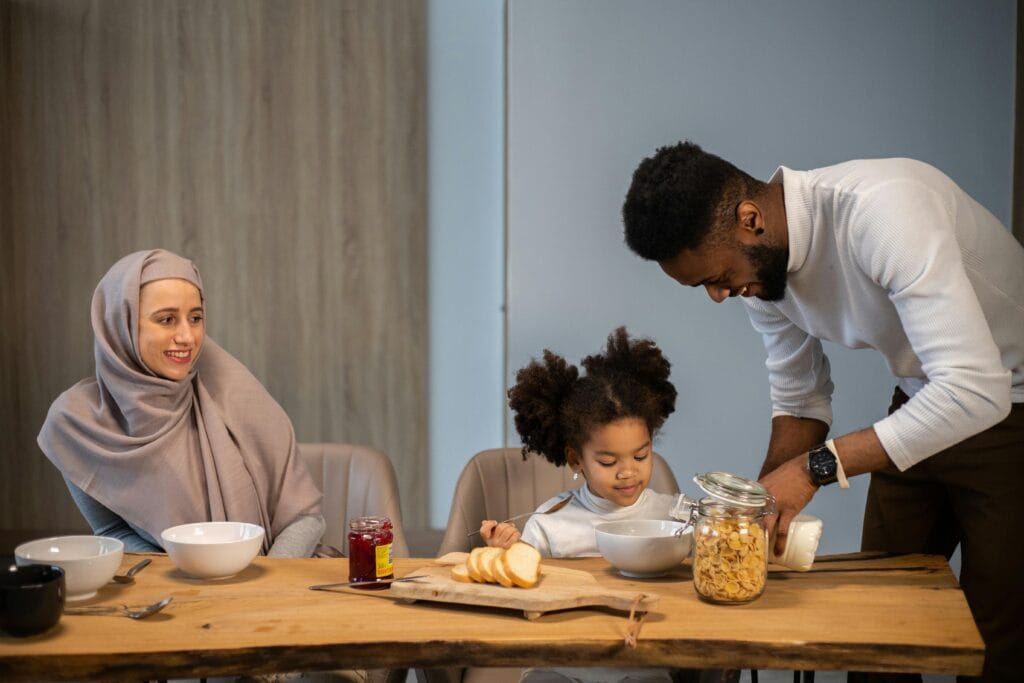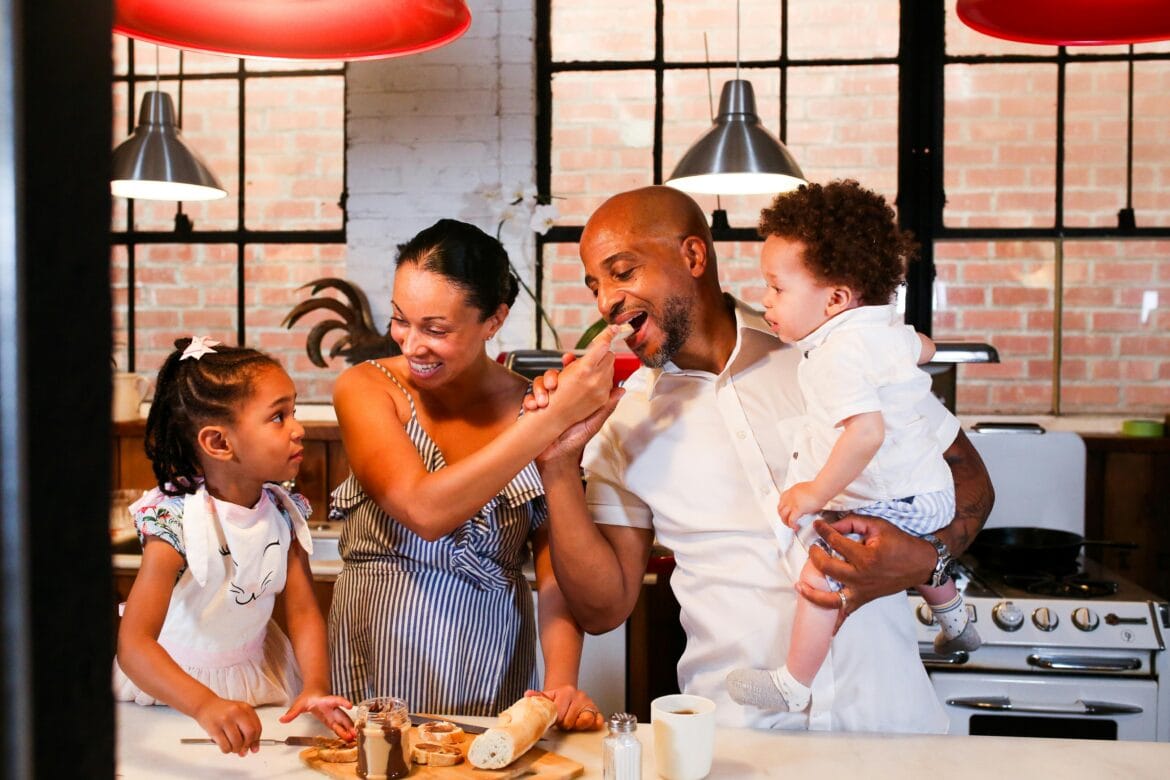In the intricate tapestry of family life, the psychological bonds that weave us together can significantly influence our mental well-being and overall health. The concept of “The Family Brain” refers to the collective emotional and cognitive dynamics that develop within family units, creating an environment where interactions foster growth, understanding, and resilience. From a psychological perspective, recognizing and nurturing these bonds is crucial; they not only enhance individual mental health but also contribute to the family’s overall harmony.
The term “Family Brain” captures the intricate web of psychological connections and interactions among family members, functioning much like a collective mind. From a psychological perspective, this concept emphasizes that families are not just a collection of individuals; rather, they operate as a unified entity influenced by shared experiences, emotions, and behaviors. Each member’s thoughts and feelings contribute to this familial dynamic, creating a unique emotional ecosystem. This interconnectedness shapes identity, nurtures resilience, and influences coping strategies in times of stress. Understanding the Family Brain encourages a deeper exploration of how individuals respond to challenges collectively, fostering a sense of belonging and support that is vital for mental well-being.
At the heart of the Family Brain are essential components such as attachment styles, communication patterns, and shared values, all of which play significant roles in shaping psychological health. Secure attachments within the family unit promote trust and emotional safety, essential for healthy development. Open communication not only aids conflict resolution but also deepens emotional bonds, allowing family members to express needs and concerns effectively. Moreover, shared experiences, whether through traditions, rituals, or daily interactions, enhance cohesion and familial identity, reinforcing the emotional ties that bind. By consciously nurturing these aspects, families can harness the power of their collective psychological landscape, fostering healthier relationships and supporting each other through the complexities of life.
At the heart of a healthy family system lies effective communication, which is often hailed as the cornerstone of strong psychological bonds. Open, honest dialogues cultivate trust and emotional safety, allowing each member to express vulnerabilities without fear of judgment. When families communicate effectively, they can address conflicts constructively, promote empathy, and support one another through life’s challenges.

Moreover, encouraging emotional literacy within the family—where members understand and articulate their emotions—can strengthen these bonds significantly. Families that engage in regular check-ins, share feelings, and discuss daily experiences are not just improving their relational dynamics; they are also enhancing their collective emotional intelligence.
Furthermore, the psychological concept of attachment plays a pivotal role in shaping familial relationships. Secure attachments, developed through consistent support and nurturing behaviors, lay the groundwork for healthy relationships both within and outside the home. Parents who foster secure attachments model empathy, responsiveness, and nurturing, teaching their children how to form strong relationships and navigate the complexities of social interactions. Conversely, insecure attachments can lead to challenges such as anxiety, low self-esteem, and difficulties in future relationships. By consciously promoting secure attachment styles—through reliable support, emotional availability, and healthy boundary-setting—families can create a robust foundation for mental well-being that lasts a lifetime.
Lastly, it’s essential to recognize that family bonding extends beyond mere communication and attachment; it is also about shared experiences and collective resilience. Engaging in family activities, whether game nights, outdoor adventures, or simply cooking together, fosters a sense of belonging and unity. These shared experiences become the glue that holds family members together, creating treasured memories that reinforce their psychological bonds. Moreover, when families face challenges—be it financial stress, health issues, or other adversities—those strong bonds can act as a buffer, helping each member cope better with stress and uncertainties. A cohesive family unit not only enhances individual resilience but also bolsters the family’s ability to thrive in the face of adversity, leading to a healthier and more harmonious home environment.
In conclusion, understanding “The Family Brain” through a psychological lens underscores the importance of nurturing emotional bonds, fostering communication, and creating shared experiences. By conscientiously cultivating these elements, families can build a healthier home environment that promotes not only individual well-being but also the collective strength needed to navigate life’s complexities. In a world that often feels chaotic, investing in the psychological bonds within the family may very well be the key to finding balance, connection, and enduring happiness.
Creating an ideal, healthier home transcends mere physical comfort; it encompasses a nurturing emotional environment that fosters well-being for all family members. From a psychological perspective, a healthy home is characterized by open communication, mutual respect, and emotional safety. These elements are essential for developing strong psychological bonds that ensure individuals feel secure and valued.

In such environments, family members are encouraged to express their thoughts and feelings openly, fostering a culture of empathy and understanding. This openness not only reduces misunderstandings but also strengthens relationships, enabling families to navigate conflicts constructively and nurture a sense of belonging.
To achieve this ideal home environment, families must prioritize emotional intelligence and active listening. Emotional intelligence involves recognizing one’s own emotions and the emotions of others, creating a foundation for empathy. Training in active listening—where family members fully engage with one another’s words and feelings without interruption—can significantly enhance communication. Practicing these skills should be intentional and ongoing, where family members regularly discuss their day, share triumphs and challenges, and support one another’s emotional needs. When individuals feel heard and understood, they are more likely to engage positively, leading to stronger relationships and an overall healthy home atmosphere.
In addition to communication, establishing routines and rituals can further contribute to a healthier home dynamic. Routine provides structure and stability, essential components for psychological well-being, especially in times of uncertainty. Whether it’s a nightly family dinner, a weekend outing, or a simple morning check-in, these rituals reinforce familial bonds and provide opportunities to connect. Over time, these shared experiences become touchpoints that nurture familiarity and reinforce the sense of belonging, making family members feel more connected and valued. Routines also allow for a predictable environment, which can reduce anxiety and create a sense of safety, crucial for both children and adults alike.
Finally, it’s vital to create a home environment that reflects positivity and support, both physically and emotionally. This entails not only maintaining a clean and organized space but also decorating with elements that evoke warmth and comfort—be it through inclusive visuals, communal spaces, or shared art projects. Furthermore, integrating elements of mindfulness, such as practicing gratitude or encouraging family members to express appreciation daily, can enhance emotional well-being. Together, these strategies create a holistic framework for an ideal, healthier home, fostering psychological resilience and nurturing the family’s emotional ecosystem. By prioritizing open communication, structure, and a positive environment, families can not only thrive but create enduring ties that stand the test of time.
Words of wisdom from Masvingo
The concept of “The Family Brain” highlights how psychological bonds within a family shape our emotional landscape and overall well-being. Just as neurons connect to create a powerful network in the brain, supportive relationships among family members foster resilience, empathy, and healthy communication. By recognizing and nurturing these bonds, we cultivate a home environment that prioritizes emotional openness and understanding. Remember, every family member plays a vital role in this interconnected system, and our individual mental health ripples outward, influencing the collective well-being. Thus, it’s essential to engage in candid conversations, celebrate each other’s strengths, and practice active listening. Together, we can create a harmonious home that not only supports our personal growth but also strengthens our family’s psychological foundation, paving the way for a healthier and happier future.


